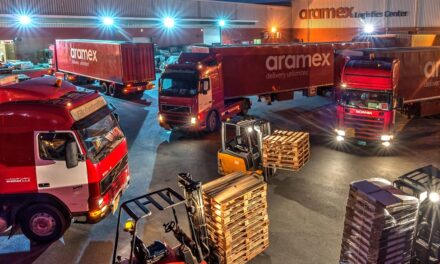
Aramex records "healthy" growth amid Middle Eastern turmoil
Express delivery and logistics company Aramex has reported a “healthy increase” in its second quarter revenues, despite continuing instability in the Middle East and North Africa region. Operations may be suspended in the civil war-torn Libya, while other markets in the region are also witnessing “challenging conditions”, but Aramex nevertheless saw its revenues rise 16% in its latest three month results.
Revenues were up to AED 648m ($176m USD) compared to the same period last year, with profits rising 3% to AED 56.5m ($15.4m USD).
The company based in Amman, Jordan, reported a “strong performance” in its operations in the Gulf Cooperation Council countries in the Arabian peninsula, continuing on from the first quarter of the year.
It said growth of the business in European and Asian markets had also contributed to the overall positive financial performance.
“We are satisfied with our results for the second quarter of this year which are in line with our expectations. In particular, we are encouraged by the strong growth across most of our core markets in the Gulf region,” said Fadi Ghandour, Aramex founder and CEO, although he added: “Our operations in a number of markets in the region are witnessing challenging conditions, with a significant drop in our revenues in these markets, while our operations in Libya remain suspended.”
Aramex is now focused on strategic expansions into emerging markets including central Asia and Africa, with the company revealing that it aims to finalise a number of new acquistions by early next year.
Ghandour said there is nevertheless caution in his company about the rest of this year, particularly given inflationary pressures on operating costs and the continuing political difficulties in key markets.
He said: “Our encouraging performance in the first two quarters of 2011 is a clear indication of our ability to adapt to rapidly evolving market conditions, and further proof of our agile business model. However, we continue to maintain a cautious outlook due to the political instability in a number of markets, and the anticipated impact of higher fuel prices and global inflationary pressure on our operating costs.”











